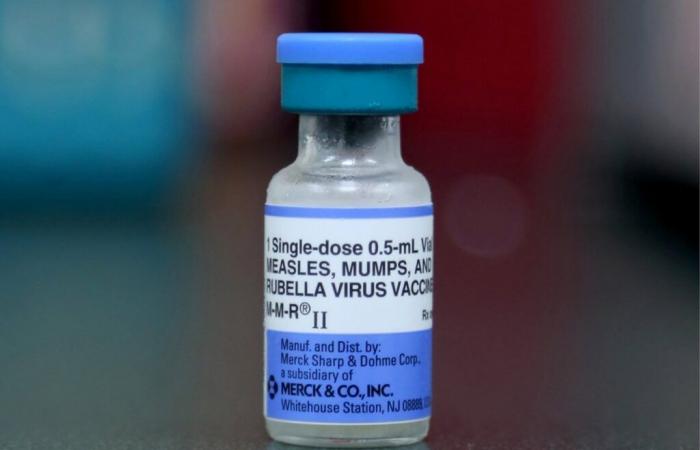MONTREAL — The Quebec Ministry of Health is warning people who may have been exposed to measles in several regions of the province to watch for symptoms due to a new outbreak of the disease.
Marie-Pierre Blier, a spokesperson for the ministry, said in an email to The Canadian Press that four cases had been confirmed in the province as of Friday in connection with an outbreak that began last month.
“According to the information available to public health, these four cases are epidemiologically linked and acquired the disease in Quebec, the first case having been exposed via a person residing outside of Canada and having traveled to Quebec during its contagious period , before receiving his diagnosis,” said Ms. Blier.
Despite the fact that some cases are in the Laurentians, the small number of cases means that “it is not possible to provide exact figures by region for reasons of confidentiality,” said Ms. Blier.
On its website, the government lists 12 different exhibition locations and dates in the Laurentides region, dating between December 11 and 28. It also warns of two possible exposure sites in Laval on December 19 and 22, as well as an exposure site in Montreal on December 22.
Ms. Blier confirmed that there were a total of 56 cases of measles in Quebec in 2024, including 51 during an outbreak between February and June.
“For each case of measles declared in Quebec, a public health investigation is carried out to determine the origin of the infection and to identify people at risk of having been exposed to the measles virus. Preventive intervention among people exposed to the measles virus can help limit the spread of the disease,” we can read on the government website.
The government maintains that people who have traveled to these areas, especially those who are not vaccinated, should watch out for symptoms, including high fever, cough, runny nose as well as red eyes and redness on the face. face and body, indicates the government website. Babies under one year old, people with weakened immune systems and insufficiently vaccinated pregnant women are particularly at risk, it is added.






